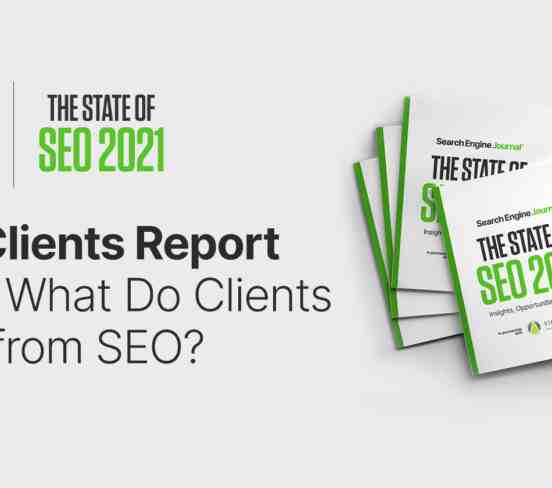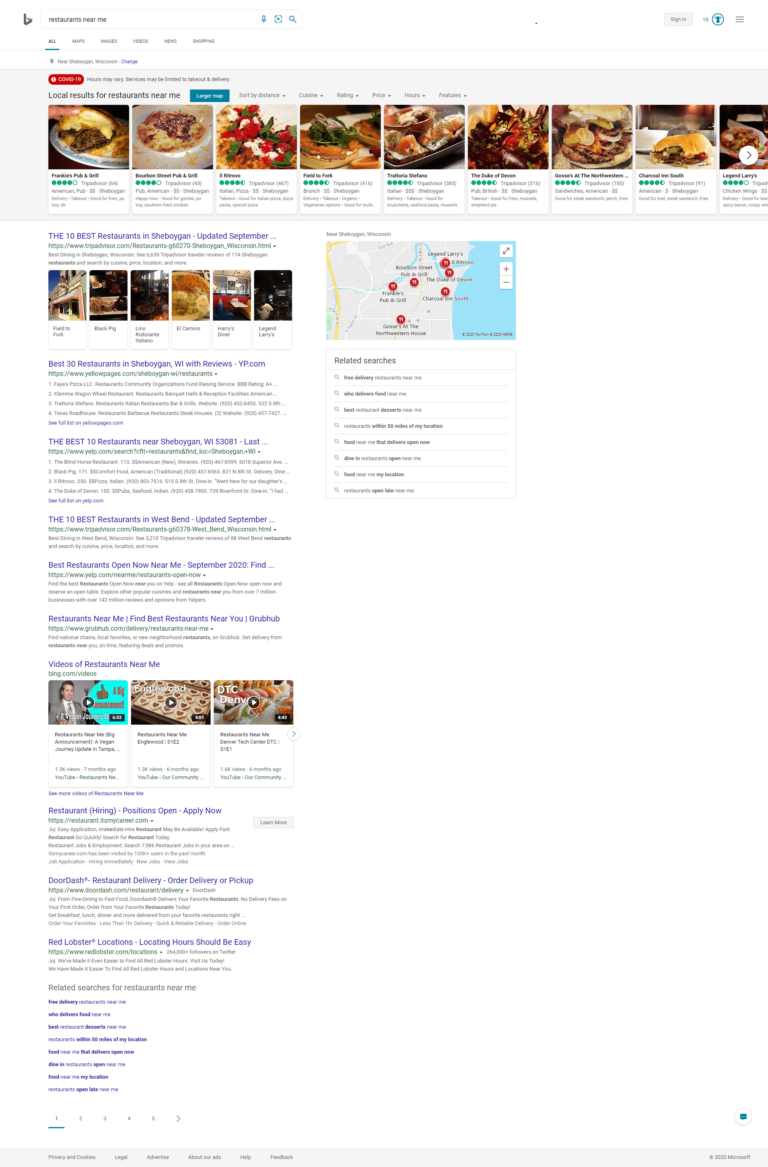6 Ways To Get Local SEO Clients You Really Want
Local businesses are often the most interesting SEO clients because of the creativity and strategy required to target a local market.
While the basics – Google business profile optimization, localized content, etc. – still apply, local businesses often need to think outside the box when trying to rank locally.
Attracting these types of customers also requires skill. Attracting positive, ambitious, and proactive local SEO clients is ideal for SEO professionals.
Here are some tips on finding local SEO clients you really want to work with.
1. Start Conversations With Local Business Owners
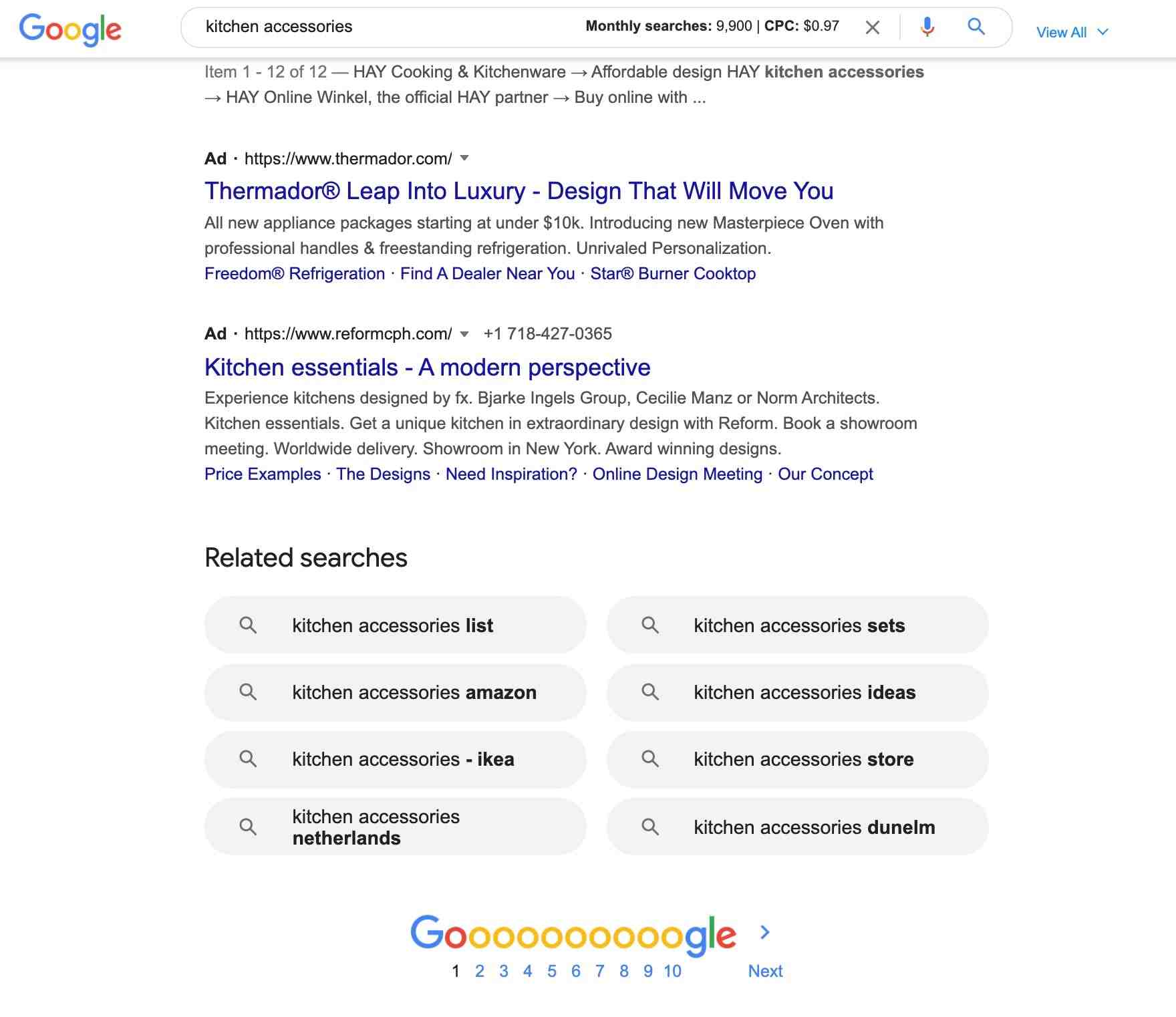
A few years ago I needed a haircut and started looking for a barber nearby. I saw a hairstylist with great reviews on Google so I checked out their website to find out more about their prices.
Unfortunately, I got a “Warning! Your connection is not private” on their website.
As an SEO strategist, I knew this was because the company hadn’t activated their SSL certificate on their website.
So I called them to make an appointment and personally informed the owner that they were having security issues with the website.
The owner was unaware of the problem and managed the site himself, so I offered to set up their SSL for free.
She later paid my team to diagnose additional technical SEO issues and continued a longer engagement.
The lesson here is that often the best way to get local SEO clients is to just start real conversations.
It doesn’t have to be as blatant as a site security issue, but if you can identify a need, the company will likely be glad you let them know there are issues affecting their business.
In addition, they will be grateful to you for giving them a hint and helping them not to miss new deals.
For example, a local business may not know that its Google Business Profile address is out of date. Or that they have 404 errors on their website.
Or that their contact form isn’t working.
Often your advice can be seen as a great favor and become an enduring commitment. Or at least open the door to the referral business once you’re seen as a local SEO expert.
Whether you’re looking for a haircut, shopping for a latte, or picking up a gift for a friend, keep your eyes peeled.
If you notice an SEO issue and take the time to offer some free value, you might be surprised how that can translate into a new client or referral connection.
2. Identify Businesses Investing In Marketing
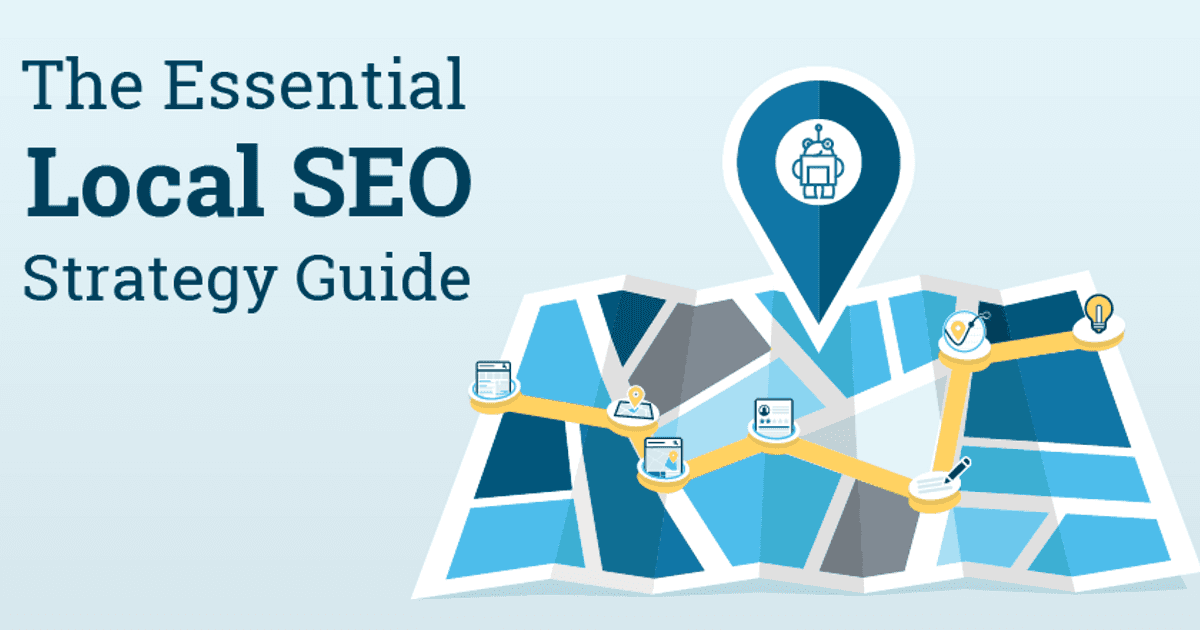
It is well known in the marketing community that clients on a tight budget are often the most demanding clients.
That’s not to say that a small budget makes you a bad customer, but that the attitude of getting more for less is often backwards when it comes to marketing.
In short, your ideal local SEO clients are those who see the value of marketing and are willing to invest in it to achieve a greater goal.
They want to use their marketing dollars to drive long-term growth.
As in the previous example, a simple oversight resulted in security issues on the site, but the company was otherwise on top of their game with their GBP (Google Business Profile) optimization and social media marketing.
The owner was open to feedback and saw value in improving their web presence.
When looking for local SEO clients, look for companies that meet the following criteria:
A company that appears to have invested in their marketing is more likely to be a great customer.
You want a client who understands the need for marketing and takes an active part in their business growth.
Once you’ve identified local businesses that seem to tick some of those boxes, reach out to them.
A free offer – like an audit or a friendly consultation – could be your foot in the door to a longer engagement.
3. Attend Speaking Events, Webinars, And Networking Meetups

I’m a fan of letting your local SEO knowledge speak for itself.
Instead of cold-messaging business owners with a sales pitch, it’s best to offer free, no-obligation value first.
This can take the form of a friendly email or, in this case, sharing your knowledge at in-person or online events.
One of the top sources of local SEO leads for my business is through speaking engagements — specifically speaking engagements and webinars tailored for law firms (my target market).
Often you can attract clients by sharing your expertise in a technical presentation, an online interview, a networking event or a conference.
And remember, business owners who proactively attend such events are often good customers.
Here are some tips on how to use events for lead generation:
Demonstrating real knowledge with business owners in your niche is one of the best ways to get engaged customers.
4. Connect With Business Owners On LinkedIn

LinkedIn is a premier business-to-business (B2B) platform that helps professionals build new relationships and find clients.
However, it’s a platform that’s often abused — with marketers spamming users with cold offers and spam.
Instead, use LinkedIn to build real connections with business owners so they’re excited to work with you.
How to use LinkedIn to get local SEO clients:
Again, inbound marketing is about creating value first.
When you drive real engagement, users will start to see you as the local SEO expert and may turn to you of their own accord.
When you’ve gotten far enough in a conversation, offer to help the business owner solve a problem.
If interested, this can take the form of a free audit, consultation or resource.
Remember that the best clients are the ones who want to actively work with you, as opposed to those who jump into a project with stiff arms.
5. Keep Your Business Card On Hand
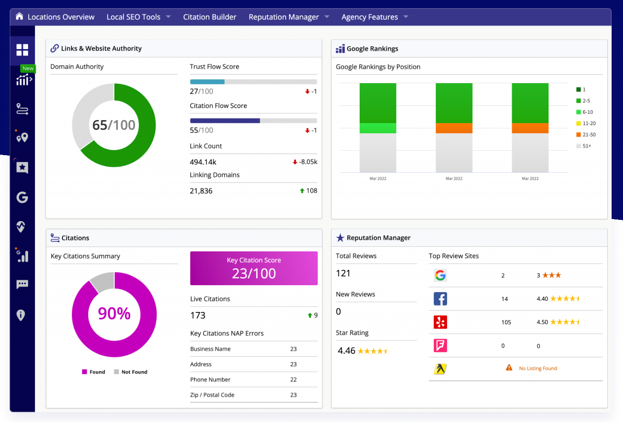
Don’t underestimate the value of traditional marketing.
Many local shops are small corner shops that like a personal touch.
They want to connect with a real person rather than a faceless agency.
When you’re on the go, keep your business card handy. Keep your eyes and ears open for conversations where business owners are looking for marketing solutions.
Even if someone isn’t willing to work with you right away, at least they have the connection to offer referrals.
The referral business is one of the other top sources of leads for my law firm SEO.
You’ll find that people are much more receptive to working with you if you start a friendly conversation first.
Having your business card handy means you are always ready to offer your information and continue the conversation in a business relationship.
6. Forge Partnerships With Marketing Agencies
I’ve discussed a few ways you can connect directly with local business owners, but there’s another smart workaround to getting more local SEO clients: agency partnerships.
Chances are there are tons of marketing agencies offering marketing services in your area.
However, not all offer SEO. Establishing a partnership could be an excellent way to get a referral business or white-label your services.
Agencies that see this as a direct sales pitch may not contact you, but others may see the value of a two-way partnership.
For example, you can send leads to them and they will send you SEO clients. Or you can give a percentage commission on new deals sent to you.
This can be a great way to passively acquire new customers without active marketing.
Also, agency partners could have many other benefits such as: B. Opportunities for guest posting or networking.
There’s No “Secret” To Getting Great Clients
You’ll find that the key to great local SEO clients is real relationships.
Whether it’s networking, speaking, forging partnerships, or providing free value, the best way to attract great customers is to build meaningful connections.
Skip the cold pitch and think first about how you can offer an advantage to local businesses or agencies.
You’ll find that many people are open to professionals who take the chance to meet them, solve a problem, and have a friendly conversation.
Do you want more local SEO clients that you really want to work with?
Use these methods to build connections and foster long-term partnerships.
Featured image: fizkes/Shutterstock
Search Engine Optimization is the science of enhancing a website to increase its visibility when people search for a product or service. The more visibility a website has in search engines, the more likely the brand is to win business.
How do I master local SEO?
6 Ways to Master Local SEO for More Clients
- Follow a comprehensive local keyword research strategy.
- Get visible quotes.
- Optimize your Google My Business listing.
- Focus on local link building.
- Work on your location pages.
Can I do SEO myself? You can absolutely do SEO yourself or DIY SEO (Do It Yourself SEO). With a little research and practice, anyone can learn how to do SEO for their business. A quick way to get started with SEO is to enter your URL here and then focus your SEO efforts on the recommended actions.
How long does it take for local SEO to work?
Local SEO Calculator: Results can technically be achieved in as little as 4-8 weeks with some minor adjustments if you already have a claimed Google listing, your site has some authority, and you’ve set the appropriate categories.
Is local SEO effective?
Local search is powerful for small businesses: 46% of all Google searches are looking for local information. If your business isn’t optimized for local search, you could be missing out on potential customers willing to shop in your local area. In short, local SEO is crucial if you want your business to stay relevant.
How long does SEO take to Work 2022?
This is the quick answer on how long it will take for SEO to work in 2022: 6 months minimum. It takes a significant amount of time before you notice good results from your SEO efforts (if you’ve done it right!). However, 6-12 months is the ideal time frame as you will see positive gains from your SEO strategies.
How long does it take to rank locally?
Analysis: In a highly competitive sector for sites with little work done, 50% of local search experts agree significant local rankings can be achieved within 3-6 months. Interestingly, the results aren’t all that different from a scenario where a customer does NOT have a website.
How much should you spend on SEO per month?
How much can you expect to spend on SEO? When you hire a top-notch SEO company to run a local campaign, expect to pay upwards of $500.00 per month. A national or international campaign requires a minimum budget of $2,500 to $5,000 per month.
How much does SEO cost for a small website? How much does SEO cost for small business? The average SEO cost for small businesses is $750-$2000 per month or $5000-$30,000 for one-off projects. Smaller businesses investing in SEO consulting services can expect to pay $80 to $200 per hour.
What is an ideal budget for SEO?
How much does SEO cost? If you hire a highly qualified SEO firm to provide comprehensive SEO services, you should be prepared to pay at least $3,000-$5,000 per month. Many companies spend tens of thousands of dollars on SEO every month.
How much does SEO cost per month?
According to a Business 2 Community article, about 75% of all search engine optimization professionals charge a monthly commission. The most popular retainer in the US is between $2,500 and $5,000.
What is a good budget for SEO?
How much can you expect to spend on SEO? If you hire a top notch SEO company to run a local campaign, expect to pay $500.00 per month. A national or international campaign requires a minimum budget of $2,500 to $5,000 per month. Some companies offer a “trial package” at a lower price without a contract.
How much does SEO cost per month for small business?
According to a survey of 1,200 business owners and over 350 agencies, freelancers, and consultants, the average SEO cost for small businesses worldwide ranges from $501 to $1,000 per month. The average SEO cost for small businesses in the United States is $2,501 to $5,000 per month.
How much do I charge for SEO work?
Hiring an experienced SEO freelancer or agency by the hour typically costs between $50 and $150 per hour. Of course there are people who charge significantly less or more than this hourly rate. For example, this breakdown of SEO hourly rates revealed that 6% of SEO vendors charge over $200/hour.
What is the average cost of a good SEO?
| Type | Costs |
|---|---|
| Cheap SEO | $500 to $3,000 per month |
| Mid-Range SEO | $3,000 to $15,000 per month |
| High End SEO | $15,000 to $30,000 per month |
| Corporate SEO | $30,000-1 million per month |
How much should I pay for SEO per month?
How much can you expect to spend on SEO? When you hire a top-notch SEO company to run a local campaign, expect to pay $500.00 per month. A national or international campaign requires a minimum budget of $2,500 to $5,000 per month. Some companies offer a “trial package” at a lower price without a contract.
How much should I pay for SEO per month?
How much can you expect to spend on SEO? When you hire a top-notch SEO company to run a local campaign, expect to pay $500.00 per month. A national or international campaign requires a minimum budget of $2,500 to $5,000 per month. Some companies offer a “trial package” at a lower price without a contract.
How much should I charge for SEO?
| Type | Costs |
|---|---|
| Cheap SEO | $500 to $3,000 per month |
| Mid-Range SEO | $3,000 to $15,000 per month |
| High End SEO | $15,000 to $30,000 per month |
| Corporate SEO | $30,000-1 million per month |
How much should I pay local SEO?
Typical local SEO campaigns cost between $300 and $2,000 per month, depending on your business needs, your competition, and your geographic location.
How much does SEO cost monthly?
The average SEO cost for US SEO agencies is $100-$250 per hour. SEO costs often range from $2,500 to $10,000 per month for US agencies. The average SEO plan costs $2819 per month (per Ahrefs). Overseas SEO companies can charge $10-$50 per hour.
Why do clients ignore me?
This could be because they are busy and haven’t had a chance to look and give her their full attention, or they don’t trust their own opinion and need to ask their business partner/spouse/client/friend.
When should you dump a customer? If you’ve just picked up a customer and they’re already giving you a hard time, it’s probably okay to politely dump them. However, if you’ve been working with your problem client for years, firing them should be a much more important decision—especially if they’ve become dependent on your agency.
What do you say when a client is not responding?
Hello [Client], I haven’t heard from you on [Project/Opportunity] so I’m assuming you’ve taken a different direction or your priorities have changed. Let me know if we can be of any assistance in the future. This email is helpful for several reasons.
What do you do when a client doesn’t respond?
If a client hasn’t responded to a project due for completion by the end of the week, maybe send a follow-up a day or two after your original message. However, if they haven’t gotten back to you within a month about your availability for a project, you should wait a week or so. Rely on the context.
How do you respond to no response?
If you get the answer “No answer”: Accept that you cannot control what others do. You don’t know their motives or justifications. So don’t automatically assume that “no answer” equals “no” unless you really know the person and how they work. Follow up once but probably not anymore.
What is a local landing page?
What is a local landing page? A local landing page is a webpage designed to attract customers in a local market using location-specific SEO strategies. The content of a local landing page should be specific to the company’s geographic area.
What is a Local Page? Local landing pages or local pages are websites for each business location. They are important for brick-and-mortar stores with multiple locations or for service companies that want to inform their customers about the geographic areas they serve.
What is the purpose of a landing page?
A landing page is a follow-up to any promises you made in your content. Essentially, it’s the next step in converting a visitor into a customer. Your landing page allows you to make a trade, some sort of special offer, information or deal in exchange for providing contact information.
Why do I need a landing page if I have a website?
Landing pages can provide insight into which visitors are most engaged with your site. Landing pages allow you to capture leads, but if set up correctly, you can observe the behavior of those existing leads online and see how they are interacting with your business.
Whats the difference between a website and a landing page?
Unlike home pages and websites, which are designed to be explored, landing pages are customized to a specific campaign or offer and direct visitors to a single call-to-action. In short, landing pages are designed to convert.
What is a landing page and how does it work?
A landing page is any web page that a consumer can land on, but in marketing it’s usually a standalone page, distinct from your home page or any other page, serving a single and focused purpose. A landing page is a follow-up to any promises you made in your content.
What is landing page and example?
In digital marketing, a landing page is a standalone web page created specifically for a marketing or advertising campaign. This is where a visitor “lands” after clicking on a link in an email or on ads from Google, Bing, YouTube, Facebook, Instagram, Twitter or similar places on the Internet.
What is the main purpose of landing page?
The primary purpose of a landing page is to encourage visitors to take action. This action is usually related to lead generation or sales. For example, you can use a landing page to encourage people to register for your webinar, purchase a free trial, or download an ebook.
What is a simple landing page?
Unlike a full-fledged professional website, a landing page is a single page with a very specific goal: getting visitors to click through to your end goal.
What is a landing page vs website?
Unlike home pages and websites, which are designed to be explored, landing pages are customized to a specific campaign or offer and direct visitors to a single call-to-action. In short, landing pages are designed to convert.
